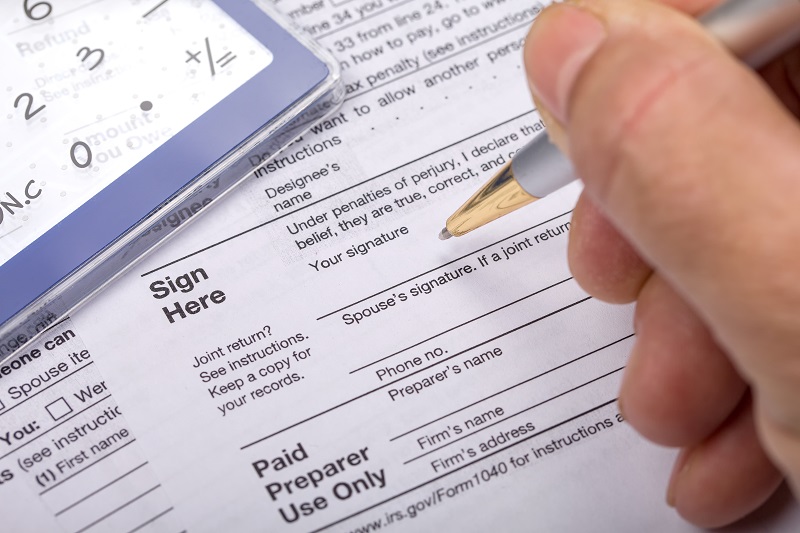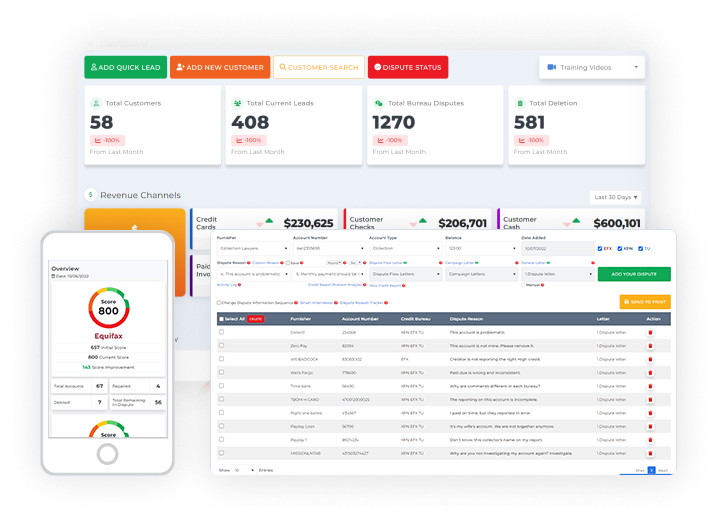Starting a credit repair business in South Carolina can be a rewarding endeavour, but it’s essential to be well-versed in the laws and regulations that govern this industry. In this article, we break down the critical legal considerations and provide valuable insights to help you confidently launch your business.
Create a Business Plan

Outline your goals, target market, services, pricing, and marketing strategies.
Here are some key steps to follow:
Research the Credit Repair Industry:
Start by researching the credit repair industry, including industry trends, regulations, and competition. This will help you identify your target market, develop your business strategy, and differentiate your business from others in the market.
Define Your Business Model:
Determine your business model, including the types of services you will offer, how you will generate revenue, and your pricing strategy. You will also need to decide on your business structure (e.g., sole proprietorship, LLC, corporation).
Identify Your Target Market:
Determine who your target customers are and what their needs and pain points are. Consider factors such as age, income, credit score, and financial goals.
Develop a Marketing Strategy:
Determine how you will market your business to your target audience. This may include online advertising, social media marketing, referral marketing, and local networking events.
Create a Financial Plan:
Develop a financial plan that includes your start-up costs, projected revenue, and expenses. This will help you determine how much money you need to start your business and how long it will take to break even.
Obtain Necessary Licenses and Permits:
Check with state and local government agencies to determine if you need any licenses or permits to operate a credit repair business in South Carolina.
Build Your Team:
Determine the skills and experience you need in your team to deliver high-quality services to your customers. You may need to hire staff or contract with freelance professionals.
Develop a System for Tracking Progress:
Establish a system for tracking your business’s progress, including key performance indicators (KPIs) such as revenue, customer satisfaction, and employee productivity.
Remember, a good business plan should be well-researched, realistic, and flexible enough to adjust to changes in the market or your business. It should also be written in a clear and concise manner, so potential investors or lenders can easily understand your vision and strategy.
Choose a Business Structure

Determine whether you want to operate as a sole proprietorship, partnership, LLC, or corporation. Consult with a legal or financial advisor to determine the best option for your situation.
Here are some of the most common structures:
Sole Proprietorship:
This is the simplest and most common business structure. It involves a single owner who is personally responsible for all aspects of the business, including debts and liabilities.
Limited Liability Company (LLC):
An LLC provides limited liability protection for its owners, meaning that they are not personally liable for the business’s debts and liabilities. This structure is relatively easy to set up and maintain.
Corporation:
A corporation is a separate legal entity from its owners, providing the highest level of liability protection. Corporations are subject to more regulations and require more paperwork than other business structures.
Partnership:
A partnership involves two or more owners who share the profits and losses of the business. Like a sole proprietorship, each partner is personally liable for the business’s debts and liabilities.
Register Your Business

Register your business with the South Carolina Secretary of State. You can do this online through the South Carolina Business One Stop (SCBOS) portal.
Here’s the step-by-step process to register your business:
Visit the SCBOS Website:
Go to the South Carolina Business One Stop (SCBOS) portal.
Create an Account:
If you don’t already have an account, click on “Create an Account” to sign up for a new account. Fill in the required information and follow the instructions to create your account.
Log In:
Once you have created an account, log in using your email address and password.
Access the Business Wizard:
From your SCBOS dashboard, click on the “Start a New Business” option. The Business Wizard will guide you through the registration process.
Choose Your Business Structure:
Select the appropriate business structure for your credit repair business, such as a sole proprietorship, partnership, LLC, or corporation.
Complete the Required Forms:
Fill out the necessary forms based on the selected business structure. You may need to provide information such as your business name, registered agent, and other relevant details.
Pay the Required Fees:
Submit the applicable fees for registering your business. The fees will vary depending on the chosen business structure.
Submit Your Application:
Review your information, and submit your registration application. The South Carolina Secretary of State will review your application and notify you once your business has been successfully registered.
To register with the South Carolina Department of Consumer Affairs for credit repair, you would typically follow these steps:
- Visit the South Carolina Department of Consumer Affairs (SCDCA) official website.
- Look for the “Business” section on the website, where you can find information related to businesses operating in the state of South Carolina.
- Search for information related to credit repair organizations or services. The SCDCA may have specific pages, forms, or applications related to credit repair organization registration.
- Download and complete the required forms, applications, or documents needed for registration. These may include applications, disclosure statements, or contracts, as required by the state.
- Submit the completed forms, along with any required fees, to the SCDCA. They may accept submissions online, by mail, or in person.
It is important to note that regulations and procedures may change over time, so it’s a good idea to visit the SCDCA’s official website or contact them directly for the most up-to-date information on credit repair organization registration in South Carolina.
Obtain an EIN (Employer Identification Number)

You will need an EIN to open a business bank account and file your taxes. Apply for an EIN through the Internal Revenue Service (IRS) website.
You can obtain an Employer Identification Number (EIN) for your credit repair business in South Carolina by following these steps:
Determine Eligibility:
To obtain an EIN, you must have a valid Taxpayer Identification Number (TIN), such as a Social Security Number (SSN) or Individual Taxpayer Identification Number (ITIN).
Apply Online:
The easiest way to apply for an EIN is online through the Internal Revenue Service (IRS) website. The online application is available 24/7 and is free.
Complete the Application:
The online application will ask you to provide basic information about your business, such as its name, address, and type of entity. You will also need to provide your TIN and the name and contact information of a responsible party for your business.
Submit the Application:
Once you have completed the application, review it carefully and submit it to the IRS. You will receive an EIN immediately upon completion of the online application.
Apply by Mail or Fax:
If you prefer to apply by mail or fax, you can download Form SS-4 from the IRS website, complete it, and send it to the appropriate address or fax number listed on the form.
Obtain Required Licenses and Permits

You may need to obtain a business license and any other required permits at the local level, depending on the jurisdiction where you’re operating. Check with your city or county government office for specific requirements.
Yes, South Carolina requires a license specifically for credit repair. However, you should consult the South Carolina Department of Consumer Affairs to obtain the most recent information. Additionally, depending on your city and county you may also be required to obtain a local tax receipt, permit, or local professional license.
Familiarize Yourself with the Credit Repair Organizations Act (CROA) and South Carolina State Laws

As a credit repair business, you must comply with federal and state laws related to credit repair services. The CROA sets the legal framework for credit repair businesses, and it’s essential to understand these regulations.
The S.C. Stat. § 37-7-101 et seq. refers to a section of the South Carolina Code of Laws, specifically Title 37 (Consumer Protection Code) Chapter 7 (Credit Counseling Services). These statutes regulate credit counseling services operating within the state of South Carolina.
The statutes in this chapter outline the rules, licensing requirements, and regulations that credit counseling services must adhere to in order to legally operate in the state. Some key provisions of this chapter include:
Definitions:
The chapter provides definitions of terms used in the context of credit counseling services, such as “credit counseling,” “debt management services,” “debt management plan,” and “debt settlement services.”
License Requirement:
It requires any person or entity providing credit counseling services in South Carolina to obtain a license from the South Carolina Department of Consumer Affairs.
Application Process:
The chapter outlines the application process for obtaining a license, including the necessary forms, fees, and documentation that must be submitted.
Surety Bond:
It requires credit counseling services to obtain and maintain a surety bond, which serves as a financial guarantee to protect clients.
Recordkeeping and Reporting:
The chapter mandates proper recordkeeping and annual reporting to the Department of Consumer Affairs, ensuring compliance with the law and transparency in the credit counseling industry.
Prohibited Acts and Practices:
The statutes specify certain prohibited acts and practices, such as deceptive advertising or misrepresentation of services, that credit counseling services must avoid.
Enforcement and Penalties:
The chapter outlines the enforcement authority of the Department of Consumer Affairs and establishes penalties for violations of the chapter’s provisions.
It is important to note that the specific statutes cited, S.C. Stat. § 37-7-101 et seq., may change over time due to legislative updates or amendments. Always consult the most recent version of the South Carolina Code of Laws to ensure you have accurate and up-to-date information.
Establish a Bond

Some states may require credit repair businesses to obtain a surety bond to protect consumers.
South Carolina does require a surety bond. Additionally, the bond shall be maintained for three years.
The required bond amount is at least $25,000.
Open a Business Bank Account

Keep your personal and business finances separate by opening a business bank account.
Here are the general steps to follow:
Choose a Bank:
Research different banks and credit unions to find one that offers the services and features that best meet your business needs.
Gather Documentation:
To open a business bank account, you will need to provide documentation such as your EIN, business license, and articles of incorporation (if applicable). You will also need to provide personal identification for all account signers, such as a driver’s license or passport.
Schedule an Appointment:
Call the bank to schedule an appointment to open a business bank account. Some banks may also offer online account opening
Complete the Application:
During the appointment, you will need to complete an application for a business bank account. The application will ask for basic information about your business, such as its name, address, and type of entity.
Deposit Funds:
Once your account is opened, you will need to deposit funds to activate it. The bank may require a minimum opening deposit.
Choose Account Features:
Choose the account features and services that best meet your business needs, such as online banking, mobile banking, merchant services, and overdraft protection.
Manage Your Account:
Once your business bank account is open, it’s important to manage it carefully. Keep track of your transactions, monitor your account balance regularly, and reconcile your account each month to ensure accurate record-keeping.
Opening a business bank account is an important step in establishing your credit repair business. It can help you keep your personal and business finances separate, streamline your accounting processes, and build a positive banking relationship for your business.
Set up a Record-Keeping System

Implement a record-keeping system to track your client information, business expenses, and income.
Here are some tips for setting up an effective record-keeping system:
Use Accounting Software:
Invest in a reliable accounting software that can help you track your income, expenses, and transactions. Some popular options include QuickBooks, Xero, and FreshBooks.
Establish a Chart of Accounts:
Create a chart of accounts that categorizes your income and expenses into specific accounts. This will help you easily track your finances and generate reports.
Track Income and Expenses:
Record all income and expenses related to your credit repair business. This includes any fees you charge clients, as well as any expenses you incur for supplies, marketing, or other business expenses.
Keep Receipts and Invoices:
Keep all receipts and invoices for expenses related to your business, and make sure they are organized and easily accessible.
Reconcile Your Accounts Regularly:
Reconcile your accounts on a regular basis to ensure that your records are accurate and up-to-date.
Back up Your Data:
Make sure to back up your accounting data regularly to protect against data loss.
Consult with a Professional:
Consider consulting with a tax professional or accountant to ensure that you are in compliance with all tax and legal requirements.
By setting up an effective record-keeping system for your credit repair business, you can save time, reduce stress, and focus on growing your business.
Create Client Contracts and Disclosure Statements

Draft client contracts and disclosure statements that outline the services you’ll provide and comply with federal and state regulations.
Creating a client contract and disclosure statement is an important step for credit repair businesses in South Carolina. Here are some steps you can follow to create these documents:
Determine Required Information:
Under South Carolina law, credit repair organizations are required to provide certain information in their client contracts and disclosure statements. This includes information about the services they will provide, the fees they will charge, and the consumer’s right to cancel the contract.
Use Templates or Seek Legal Advice:
It is recommended that you use templates or seek legal advice when creating your client contract and disclosure statement to ensure that you include all the required information and comply with state and federal laws.
Include Specific Information:
Make sure that your client contract and disclosure statement include the following information:
- A description of the credit repair services you will provide, including any guarantees or promises you make.
- A list of all fees you will charge, including any upfront fees or ongoing monthly fees.
- The duration of the contract, including the start and end date.
- The consumer’s right to cancel the contract within three business days of signing it.
- A disclosure statement that informs consumers of their rights under state and federal law related to credit reporting, credit repair, and credit monitoring.
Have Clients Sign the Contract:
Once you have created your client contract and disclosure statement, make sure that all clients sign the contract and receive a copy for their records.
South Carolina prohibits contract terms from exceeding 5 years. This means a new contract will be required if the 5 years term expires.
S.C. Stat. § 37-7-110 is a South Carolina state statute that outlines the requirements for credit repair services in the state. The statute is part of the South Carolina Consumer Protection Code, which aims to protect consumers from unfair and deceptive practices by businesses.
Under S.C. Stat. § 37-7-110, credit repair organizations must provide consumers with a written contract that includes specific information about the services they will provide, the fees they will charge, and the duration of the contract. The contract must also inform consumers of their right to cancel the contract within three business days of signing it.
In addition, credit repair organizations must provide consumers with a written statement of their rights under state and federal law related to credit reporting, credit repair, and credit monitoring. The statement must be provided before the credit repair organization provides any services to the consumer.
S.C. Stat. § 37-7-110 also prohibits credit repair organizations from engaging in certain unfair or deceptive practices, such as making false or misleading statements about their services or charging upfront fees for their services.
Overall, S.C. Stat. § 37-7-110 aims to protect consumers from unscrupulous credit repair organizations and ensure that they have access to accurate and honest credit repair services.
Develop a Marketing Plan

Create a marketing strategy to attract clients, using various channels such as online advertising, social media, and local networking events.
Here are some steps you can follow to develop a marketing plan:
Identify Your Target Audience:
Determine who your ideal customers are and what their needs and pain points are. Consider factors such as age, income, credit score, and financial goals.
Determine Your Unique Value Proposition:
Determine what sets your credit repair business apart from others in the market. This could include your expertise, customer service, or pricing strategy.
Set Marketing Goals:
Determine what you want to achieve through your marketing efforts. This could include increasing brand awareness, generating leads, or driving sales.
Choose Marketing Channels:
Determine which marketing channels will be most effective in reaching your target audience. This could include online advertising, social media marketing, referral marketing, and local networking events.
Develop a Content Strategy:
Determine what type of content will be most effective in reaching your target audience. This could include blog posts, social media posts, videos, or email newsletters.
Create a Budget:
Determine how much money you can allocate to your marketing efforts and create a budget that allocates funds to different marketing channels.
Measure Your Results:
Track your marketing efforts and measure your results against your goals. This will help you determine which marketing channels and tactics are most effective for your business.
Remember, a successful marketing plan requires ongoing effort and adjustment. Stay engaged with your target audience and adjust your strategy as necessary to ensure that your marketing efforts are effective in driving growth for your credit repair business.
Ready to start your credit repair business in South Carolina?
Make sure you are informed and compliant with the latest state laws.
Click now to learn more.
We hope this article has given you a clear understanding of the laws and requirements for starting a credit repair business in South Carolina. With this knowledge, you can proceed confidently, knowing you have the necessary insights to navigate the legal aspects and build a thriving business.
Bonus: Now that you have read this article, why not take your new skill and start your own credit business helping others? We have free training that can help you do just that.



